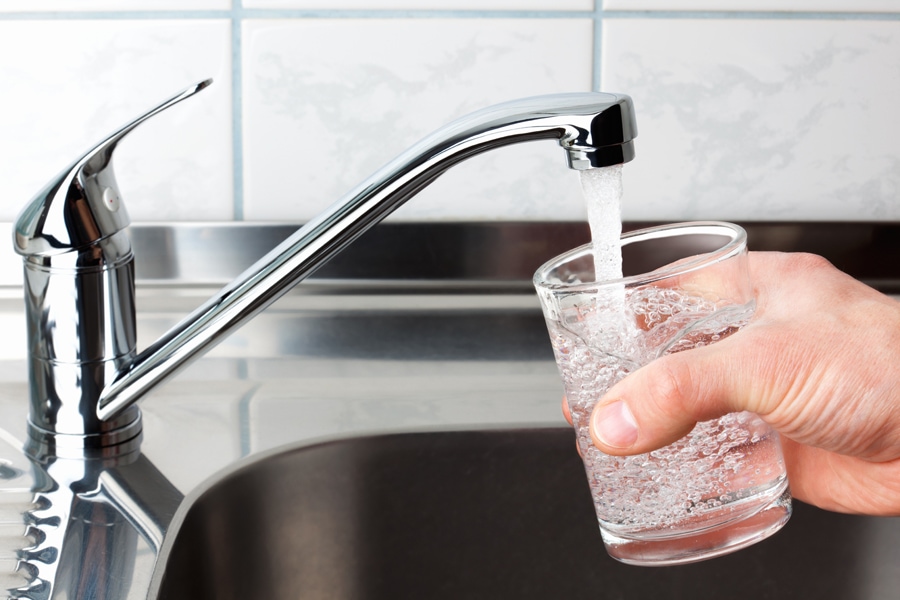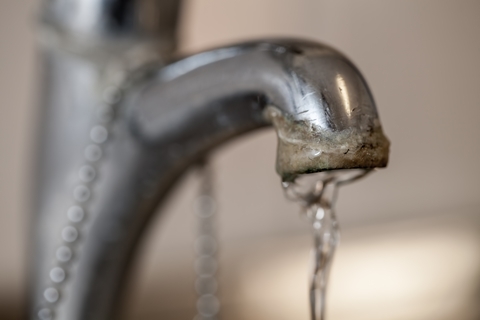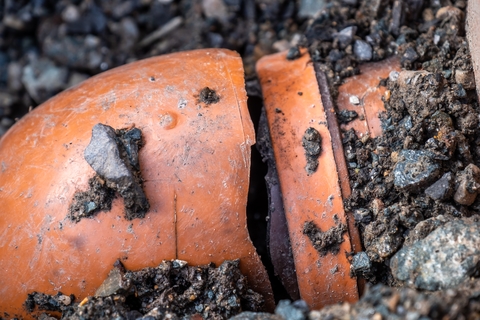Switching To City Water: A Guide For South Jersey Towns

What to Expect:Switching From Well Water to Public Community Water Systems
More and more communities in Cape May and Atlantic counties have gone from using well water in their homes to using city water — or, more accurately, a public community water system.
From a homeowner’s perspective, their town installs new water mains, and then it’s up to each property owner to connect their home to those municipal lines.
At Broadley’s, we’ve done plenty of plumbing work in towns that have gone this route. So, if you’ve gotten a notice that your town will soon require you to install a new plumbing line, you’ve come to the right place.
We’ll explain why it’s happening, what the advantages are, and what you need to do.
Why Are We Switching?
New Jersey has been switching from well water to public systems little by little, town by town. South Jersey is no different, and each city makes the decision on its own.
With that in mind, it’s tough to give a blanket statement as to why your town is putting in city water. But, according to Gary Brune, policy manager for New Jersey Future, there are a few common reasons.
“Typically, it revolves around the quality of the water, either from a regulatory sense or from the standpoint of the owner,” he explained.
First, as rural or less-populated areas become more developed, the population overdraws from nearby aquifers or other water sources.
At that point, the reserve needs to fill back up. Otherwise, it can lead to saltwater intrusion, where water saltwater pushes inland and degrades the quality of the drinking water.
Meanwhile, there may also be concerns about the quality of the water regardless of intrusion.
What’s My Responsibility?
Once your town installs water mains, it’s up to every homeowner to install a new line that attaches their house to the main.
That line connects the house to the municipal water supply. You won’t rely on well water anymore.
What are the Advantages of City Water?
The significant advantage of city water is hygiene. Water from public community systems is purified; well water is not. And, in New Jersey, there’s a distinct difference.
Generally speaking, well water has high mineral content. Sure, you see “mineral water” advertised as a healthy drink, but that’s not what we’re talking about here.
Instead, we’re thinking about excessive levels of “good” minerals such as calcium or magnesium. They’re safe to drink in certain doses, but too high a concentration gives you hard water.
Then there are minerals you don’t want at all, like arsenic — but which show up in Jersey well water quite often.
Or lead, which showed up with more than 9,000 New Jersey wells out in the mid-2000s. And, that was during the testing of 51,000 wells — just 11 percent of all private wells in the state at the time.
By contrast, a city or municipality provides filtered water that keeps all those chemicals and minerals in check. It also removes bacteria and other contaminants.
Now, this isn’t all to say your well is poisoning you. After all, the state orders testing when you’re selling a home with private well water. And, you can get the assessment easily enough if you need it.
But, overall, corrosive groundwater is a problem in New Jersey. While city water may taste different, it can be better for you.
Updating Your Plumbing
There’s also another advantage for many homeowners: Getting rid of old pipes and updating your home’s infrastructure.
We talked a lot in another article about problems with old plumbing. In a nutshell, older pipes made of galvanized steel or similar materials — and those don’t last forever.
After a few decades, you can end up with loose joints, rust flakes, and other problems. That’s not the same as with PVC or ABS plastics.
We’re usually not replacing these because people are playing it safe. You can’t see these pipes, so the only way you know there’s a problem is once it’s too late. Then, it’s an emergency.
Finally, there’s water pressure: you’ll get stronger, more consistent pressure with a public system than private wells.
Broadley’s Installs New Water Lines in South Jersey
Whether you have a problem with your water or know you need to upgrade your infrastructure, you can rely on Broadley’s to get it done with minimal disruptions to your day-to-day life.
One advantage of being in business for homeowners in Cape May and Atlantic counties for nearly a century is that we know the terrain — literally.
Having worked in towns from Cape May to Avalon to Upper Township, there’s little underground that surprises us. We know what equipment to bring for homes near the beach, further inland, when to prepare to pump underground water, and more.
Since you won’t have water in your house during the job, this knowledge helps us minimize the time we’re there. And, with easy financing, it’s easy to budget.
If you suspect any problems with your water lines, or if you’ve received a notification that it’s time to connect to a city line, call or email us today at Broadley’s.





